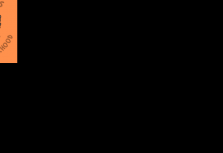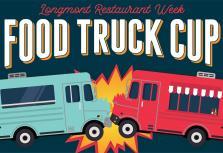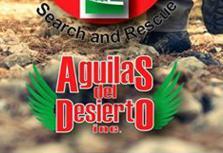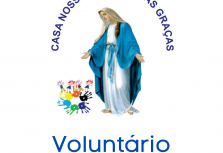
Opportunity Details
We will be at it on Thanksgiving for the third year in a row, with a few more sites. Traditionally, we’d set up three distribution sites through the city, however this year we have five!! Each site will be equipped with prepared meal and other giveaways!Available Shifts
| Shift Name | Signup Max | Start | End |
|---|---|---|---|
| Heroes Unite! | 2 | n/a | n/a |

Opportunity Details
Summary:FOHSEN is a global NGO that works to accelerate health equity by bringing together public
institutions, businesses, and investors to solve Senegal's most pressing health challenges.
With expertise in public health, development, technology, and advocacy, FOHSEN develops and scales to strengthen health systems throughout rural Senegal.
The VP of Programming will lead general management of all program areas, which includes
program delivery and evaluation, as well as fundraising, budget setting, knowledge management, and all external relationship management. The position will be a part of the senior management team that drives the overall strategy for the organization.
PRIMARY RESPONSIBILITIES:
● Attract, develop, coach, and retain high-performance team members, empowering them
to elevate their level of responsibility, span of control, and performance.
● Work with staff to develop systems to ensure consistent, high-quality project
management.
● Ensure ongoing programmatic excellence.
● Provide leadership in development of inter-team communication and cohesiveness,
sustaining culture and supporting staff during organizational growth.
● Assist in managing relationships with partner organizations.
Time:
● 7-10 hours per week

Opportunity Details
Poszukujemy osoby, która zna się na SEO i byłaby w stanie wesprzeć nasz zespół analizą, przeglądem i propozycją usprawnień do wdrożenia na stronie internetowej naszej organizacji. Chcemy trafiać z informacją o naszych działaniach do jak największej grupy osób LGBT+ oraz osób wspierających. Szczególnie zależy nam na trzech grupach osób:1. Osobach, które chcą działać na rzecz osób LGBT+ w swoich lokalnych społecznościach.
2. Osobach, które chcą zwiększyć swoją wiedzę i kompetencje na temat tego jak wspierać osoby LGBT+ w swoich lokalnych wspólnotach (szczególnie na polskiej wsi i w małych miejscowościach).
3. Potencjalnych darczyńcach - czyli osobach, którym - tak jak nam - marzy się, aby w każdej społeczności w Polsce osoby LGBT+ poczuły się w pełnie u siebie. W końcu.

Opportunity Details
The Food Truck Cup is an outdoor festival that not only showcases food trucks, but local craft beverages and live music too. It is our big annual fundraiser, which directly supports the important hunger relief work we do all year round. We weren't able to do it last year, so we're very excited for its return this year!We are specifically seeking volunteers that can help with site set up and/or take down. All volunteers will be given general admission access to the event.
Available Shifts
| Shift Name | Signup Max | Start | End |
|---|---|---|---|
| Set Up Crew | 20 | n/a | n/a |
| Clean Up Crew | 15 | n/a | n/a |

Opportunity Details
Sertoma Club of Nashville is hosting a fund raising party in support of HearNashville. HearNashville is a non-profit organization helping qualified low-income adults with both financial assistance and professional services to obtain hearing aids and to provide hearing-related education in Middle Tennessee. Volunteers are needed to help in various areas of the day-of party setup and administration.Available Shifts
| Shift Name | Signup Max | Start | End |
|---|---|---|---|
| General | 10 | n/a | n/a |
Opportunity Details
This year our Annual Fair is running October 22nd through October 31st. We are so excited to bring the community together again.On October 24th we are having a wine tasting event and all proceeds are going to benefit our Foundation. The Alameda County Fair Foundation’s sole purpose and mission is to create new opportunities for youth engagement, expand & enhance educational programs and fund capital projects that will strengthen the viability and relevancy of the Fair for future generations.
Our guests will enjoy unlimited wine tasting from award winning local wineries with varietals from all across the Tri-Valley and beyond! It will be an opportunity for the community to get to know the Fair Foundation and its landmark project, The Farm.The Farm will be a state-of-the-art exhibition farm located in the heart of the Alameda County Fairgrounds.
We are looking for 30 volunteers to help pour wine during the event. This is a great way to interact with community members and support the Alameda County Fair.
Volunteers are needed from 1:30pm-5:15pm. Volunteers will receive admission to the fair and complimentary parking. Volunteers can attend the fair before and after their volunteer shift.
This is a very fun event. All information and supplies are provided.
Available Shifts
| Shift Name | Signup Max | Start | End |
|---|---|---|---|
| Wine Pourer | 20 | n/a | n/a |

Opportunity Details
Ahiara Development Union USA Inc is seeking for volunteers to help the organization raise funds to carry out its Save Our Children projects as stated in its IRS Determination Letter under IRS 501(C)3 mission and purposes. We have projects here in USA and Africa.Interested volunteers will take Texas TABC training to qualify to volunteer on our behalf with Houston Texans Football Club.
Other volunteers will help us to raise funds for youth agriculture and bakery education and economic empowerment in Africa.
Any volunteer interested can reach Tobias Ogu at 713-271-7626, 281-330-1011 Cell or email at children@ahiara.org.

Opportunity Details
Aguilas del Desierto is a humanitarian non-profit organization dedicated to saving lives along the US-Mexico border and recovering the remains of those who have tragically perished. Aguilas does not aid in illegal crossings and is committed solely to preserving life and dignity.In an effort to prevent needless loss of life, Aguilas conducts semi-annual Public Awareness Campaign, visiting shelters in Mexico, Guatemala, El Salvador, and Honduras to educate migrants about the dangers of crossing and how to call for emergency help. Since its founding in 2012, Aguilas has rescued over 1000 people alive and recovered the remains of over 150 people. We can not count how many lives were saved through education.
With a social media following of over 350,000, Aguilas has built a trusted network spanning from remote villages to consulates, providing a safe channel for migrants and their families to seek help. Receiving nearly 2,000 calls annually, Aguilas coordinates with international, federal, state, and tribal agencies to respond swiftly to emergencies and save lives. Each search costs at least $3000 USD for equipment, food, gasoline and insurance. Each year, our highest expense is gasoline at over $30,000 for the year.
Aguilas accomplishes these efforts, and all its supporting functions, through the selfless and dedicated efforts of volunteers.
Would you consider helping save lives at the border through? The work of Aguilas is totally dependent upon public support. We have recently begun efforts to seek and pursue grant funding. We can use the help of grant writers and those who would like to work on a team.
We could also use the help of those who have experience with marketing and social media. With over 350,000 followers on Facebook, reaching out is important, but consistency even more so. Please consider volunteering your time to help raise funds, disseminate public information, and developing our online community.

Opportunity Details
A Casa Nossa Senhora das Graças conta com a ajuda de voluntários para oferecer o melhor acolhimento possível para as crianças e adolescentes que se encontram em nossas casas. Com o acompanhamento da equipe técnica, nossos voluntários são orientados sobre os processos da assistência de alta complexidade e desenvolvem papeis de acordo com o seu perfil. Podem desempenhar atividades operacionais, educativas, brincadeiras, esportivas e lazer.O desejo de ajudar faz toda a diferença.

